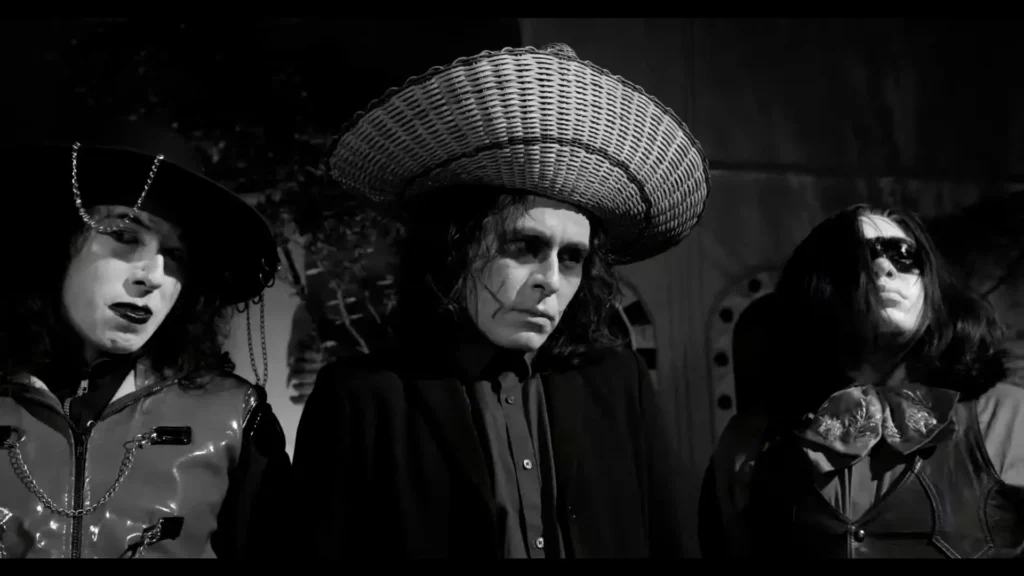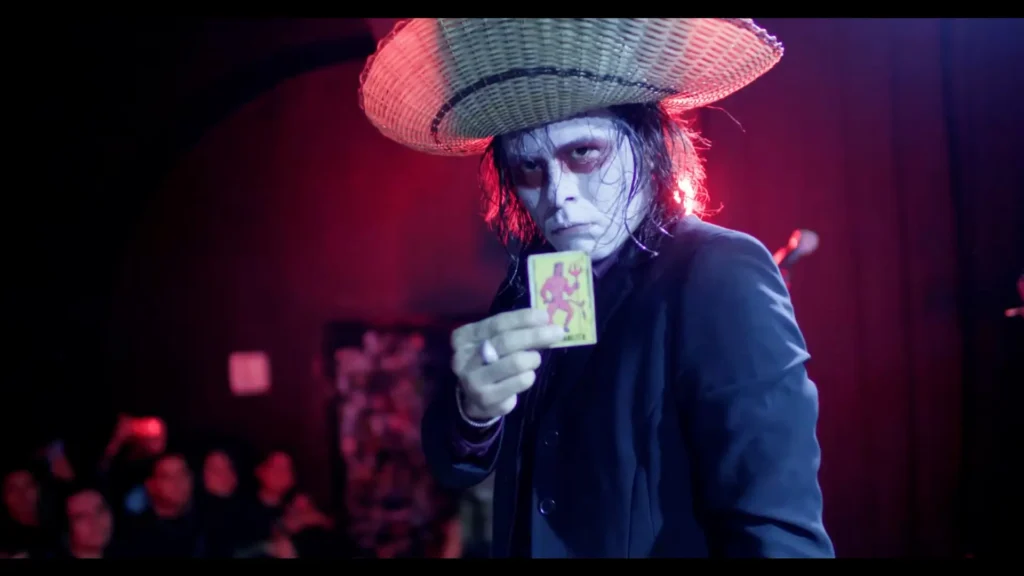“We are not subject to fate, we control our careers.”
– Oscar Tanat.
“I remember when I applied for a venue in Mexico City and the owner of the venue told me: ‘No kid, you can’t even get a hundred people to come,’” said Oscar Tanat, vocalist and producer of La bande-son imaginaire in an interview with Mexican Press Agency (MxPA), a Mexican darkwave band that remembers well how difficult it was to convince the national music industry that their project had wings to fly high.
This was the moment when the musicians decided to stop pursuing a path filled with tolls and roadblocks and begin forging their own through effort and perseverance.

The work of these talented Mexicans transcends what might be considered a concert, blurring the lines between theater and musical performance, and has captivated audiences from Costa Rica to the Netherlands. Macario’s synthesizer-powered dreams have captivated Spaniards, Belgians, and Parisians alike.

The bande-son imaginaire combines elements of traditional Mexican culture with gothic style to create something new, something fresh, and yet familiar. Composed of Óscar Tanat (vocalist and producer), Heri Tanat (keyboardist), and Bram Hernández (violinist), this Oaxacan band has toured several countries around the world.
For those who haven’t heard any of the group’s songs, you might be surprised to know that Oscar sings in both Spanish and French. This blend of reinterpreted European culture is one of the main characteristics of his work.
“We proposed the idea of a hybrid that dialogues with both European and Mexican music, but it’s not a Mexican cliché,” the group’s vocalist told MxPA.
The musicians also lamented the idealization of Mexico’s indigenous heritage as a ghost of the past, even though in many parts of the country, including Mexico City, these peoples continue to exist and speak ancestral languages that saw the transformation of this nation, in which they are often rendered invisible.
It’s not the Mexica of the Anthropology Museum that inspires the artists of La bande-son imaginaire, it’s the living heritage of our country’s culture that doesn’t respond to trends or seek to become a commodity.
“La Bande takes elements that seemed incompatible and applies a very personal filter to them, which, although rooted in the Mexican essence, is the filter of La Bande,” Bram commented.
They also told MxPA about their rejection of the Mexican music industry, which (with a few exceptions) makes little or no effort to promote innovative national art. According to the artists, it’s the industry’s blindness that prevents them from seeing beyond a handful of musical offerings and discovering new horizons.
This criticism was enough to ignite the drive that now moves them to accept the responsibility their fans have bestowed upon them to be, in Bram’s words, “our three Mexican warriors who are going to make a difference abroad.”
How to bring Mexican culture to European stages?
For La bande-son imaginaire, there was a special concern about connecting with the Belgian public given the differences in language and culture between the two countries. These Mexican artists, who embrace French in their lyrics, are no strangers to the old world, but the idea of performing far from Romance-speaking nations presented a challenge.

“(We were) worried that we wouldn’t satisfy them, that we wouldn’t provoke in them what we wanted to provoke,” Heri recalled.
“It was a question of how to convey ideas that are purely Mexican. How to communicate with a different kind of cultural, artistic, social, and behavioral perspective,” Bram added, regarding trying to establish a connection with these countries so distant from our Latin American reality.
The challenge of sharing Mexican culture with international audiences “Is not just the language as a code, it’s also the transmission of culture. How do you approach a project that has many Mexican elements and those elements don’t necessarily mean anything to the viewer?” said Oscar, who, also as an anthropologist, is always aware of the barriers that must be broken to convey the feeling and essence of his work.
The result of the musicians’ effort and sensitivity to connect with European audiences is documented in the band’s many live videos. What began with doubts ended in a joyful celebration of the obscure for everyone involved.
What do mexican artists need to achieve international recognition?
The band, now experienced in tours abroad, responded emphatically: Have a business vision and don’t wait for someone else to figure it out for you.

“There are many artists who have a great product, but they stop there because they lack business acumen. They believe that earning money is at odds with creating,” Oscar reflected during the interview. For the Oaxacan vocalist, there’s no shortage of talent in our land; what’s missing is the initiative to take it to the next level.
In this sense, Mexican bands lack a marketing, promotion, and self-organization strategy that would allow them to break the chains of the traditional music industry.
This initiative has also served them well abroad. They say that in Paris, a promoter told them he didn’t think the project would attract many people and was going to rent a small venue and charge eight euros per person. The Mexican musicians weren’t happy with this response and decided to organize a show in the French city themselves.
With the help of Oscar’s wife, they navigated European bureaucracy and learned everything they needed to organize their own event. This experiment ended up being a success: the concert sold out, and the artists managed to recoup their entire investment. They learned from the process of organizing events in the old world and delighted Parisians with a wave of dark synthesizer music brought straight from Mexico.
The Tanat brothers acknowledged that this wasn’t easy; they weren’t born with business vision; they developed it as their only option when faced with a series of closed doors.
The recognition these artists have achieved is the fruit of taking their destiny into their own hands, conjuring up dark notes in the world that didn’t exist before. It’s the result of not sitting back and waiting for someone to come and rescue them from abroad, but rather working to export themselves wherever Baudelaire mexican style needs to be heard.
The bande-son imaginaire will be performing at the Teatro Metropólitan in Mexico City on September 5th and they promise to bring a show full of surprises because in the words of Heri, the band’s keyboardist, “(we’re going to be) in a theater and theater has also been our strong suit for a long time.”